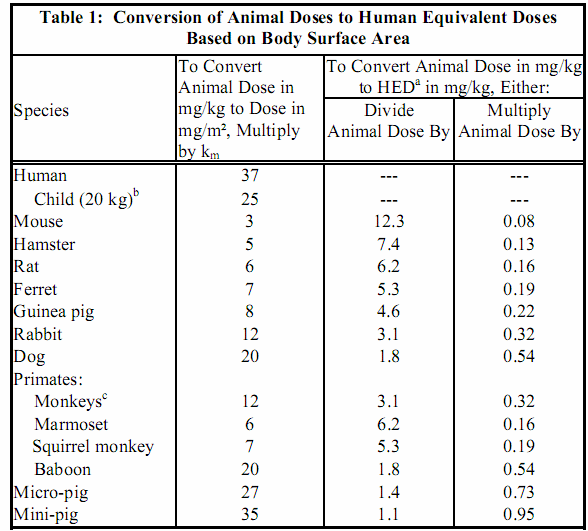Edited by Heinsbeans, 03 October 2016 - 03:44 PM.

Could Brintellix + Caffeine affect my score on a psychometric test?
#1
Posted 03 October 2016 - 03:40 PM
#2
Posted 03 October 2016 - 04:28 PM
You don't just have depression. You have ADD too, or possibly borderline personality. Good luck. You'll need it.
Taking the caffeine might make you nervous and make it harder to finish the test on time, but on the vast majority of question types, I can't see this combination slowing you down?
You're on a good SSRI (see below quotes from Area-1255), but if cymbalta was more effective it suggests a complicated case of depression.
"It's [Vortioxetine] one of the only good anti-depressants out there and actually improves memory function."
"Vortioxetine, wellbutrin, mianserin, mirtazapine , agomelatine, trazodone <````` those are the only "safe" anti-depressants without sexual side-effects and negative endocrine incidences."
[and i thought sertaline could make the list too, but not according to area?]
#3
Posted 09 October 2016 - 04:49 AM
I took the psychometric test on 7th of October but we ran out of time to finish rest of the test so I have to wait until another appointment. In the first working memory test, I had to repeat back the numbers my psychologist spoke out. In the second test, I had to repeat back the numbers he spoke out back words. And in the third test, I had to repeat back the combination of numbers and letters that he spoke out(e.g. 1C8A9F4T) but I had to repeat back the numbers from lowest to highest and the letters in alphabetical order(e.g. 1489ACFT). I was told that I scored above average in the working memory test. But I feel like my working memory was skewed because I'm currently on Brintellix which has improved my memory a little bit and I also drank a lot of coffee on the day I took the test.
I haven't done any spatial working memory test yet and I hope we get to do that in the next appointment.
With the general knowledge test and literacy test, I was told that I scored below average which my psychologist said he was concerned with. But that could just be due to my English being a second language since I was never able to develop it fully. I grew up in Japan and only spoke Japanese until I was 9 and I only started learning English when my parents moved to Australia when I was 9 years old. So I missed a few critical years of language acquisition.
Since I scored above average in the working memory test, I'm not sure if my psychiatrist will let me go on Strattera anymore. If I can't, then I'm probably going to go back on Cymbalta since although it wasn't as effective for memory as Brintellix, at least it was helping me greatly in the motivation, attention and mental energy area. Because on Brintellix, I find it really hard to force myself to do things that I should be doing even with the help of caffeine. So although Brintellix has been good for memory, I prefer to be on Cymbalta since it was easier for me to force myself to take up on "adult" tasks like learning to drive, looking for jobs, working long hours etc.
Edited by Heinsbeans, 09 October 2016 - 05:17 AM.
#4
Posted 10 October 2016 - 02:36 AM
When I mean "adult" responsibilities, I mean things like; cleaning the house/clothes/dishes, learning to drive, working long hours, looking for jobs, studying etc. it's really hard to get myself to do these tasks while on Brintellix even with the help of coffee. It was so much easier to do these things when I was on Cymbalta since I had much stronger will power.
Actually, rather than going back on Cymbalta, if my psychiatrist won't let me go on Strattera, I'd rather trial with Brintellix(SSRIs) + Edronax(NRI) since Brintellix is a pro-cognitive antidepressant and I want to keep taking it. But I don't like being on Brintellix alone since I still lack the mental energy, alertness and have no drive/motivation/will power/grit.
Before anyone starts recommending nootropics as a replacement for antidepressants, I've already tried most of them and they turned out to be short-acting and/or ineffective: https://1drv.ms/w/s!...k3FKAYwvM7NWe3M
Edited by Heinsbeans, 10 October 2016 - 02:48 AM.
#5
Posted 10 October 2016 - 02:24 PM
I think you have a very complicated situation. I am going to ask you to do something. Suspend what you think you know about your condition for 1 hour. Read what i have to say with an open mind. For the rest of the hour, let it sink in, and pretend it were absolutely true. When that time is up, compare it to your old assumptions, and see which seems more likely in your head. Perhaps you'll even arrive at a combination of both. You’re in a very frustrating situation. So what do you have to lose by doing this exercise, except for perhaps a little bit of your assuredness? Rest assured I’m not trying to criticize, only to help.
,,,
What you likely have here is mess of external pressure, cultural expectations, self-defeatisms, self-fulfilling prophecies, depression, and neurotransmitters run amok.
The first thing I need to talk to you is about dualism. We have this idea in most cultures that the mind and the body are separate. We get this from religion in almost all cultures (the ‘soul’). We get it from Descartes. We get it from computers (the brain is the hardware and the mind is the software). We see the mind as this ethereal thing in our heads, connected yet not connected to our brains. And we see it as containing our will. So when our mind effects our brain, that’s OK. But when our brain effects our mind (placebo, hypnosis, etc...), this is seen as weakness. This separation is called dualism, and there is literally no evidence for it. What we do have evidence for is that the mind IS the brain. Thoughts cause neurotransmitters to fire. Exercise cause neurotransmitters to fire. Placebos cause neurotransmitters to fire. Drugs cause neurotransmitters to fire. The hardware and the software are the same thing. That’s why therapy and medication are equally effective in treating depression, and a combination is even better.
With that out of the way, let’s talk about you.
I feel like I got my “stupid” genes from my dad’s side and my younger brother got his smart genes from my mom’s side
May I ask how you came to this conclusion? Did you get a genetic test? And if so, I assume you then found out which genes are responsible for intelligence. Being that this has yet to be done, you have a noble prize awaiting for you! By believing this, you create an expectation for yourself that you are not intelligent in any way, shape, or form. This could psychologically prevent you from performing well. And if we are to look at it from a monistic (non-dualistic) standpoint, since thoughts release neurotransmitters, perhaps you are creating Hebbian learning circuits that are neurologically preventing you from intellectual achievement.
This idea that you aren’t smart had to come from somewhere. You say you are Japanese. The pressure to perform academically in that culture can be intense. Perhaps you fell just a little behind your brother at a young age, not significantly so, but were shamed for it, and then became reluctant to perform at all, eventually believing you were stupid? Perhaps you made simple mistakes, and a big deal was made out of them, and your mind took that as evidence of a lack of ability?
Watching your brother succeed, and you fail, would of course lead to depression. The lack of motivation and focus you are having are common symptoms of depression, and do not necessarily entail a cognitive disorder.
But wait you say, you’re wrong! If I don’t have cognitive deficits, then how can the Brintellix be improving my cognition? The study made it clear! Well, I went and read the whole study. Rats were given doses of 1, 5 and 10 mg/kg. It seems like for the vast majority of the tests, the only effective dose was 10 mg/kg. Take a look at this chart, it’s a guide to convert doses between humans and various animals.
So let’s assume you are 150 lbs. That’s pretty light. That would be 68 kg. Multiplying by 10mg per kilogram, that gives us 680 mg/kg. The chart says to convert to a human dose, we multiply by .162. This gives us 110.16 mg/kg, far above the 20mg you’re likely taking. This doesn’t even take into account that these were acute doses administered to the rats, instead of the chronic doses you are taking, making the study even less relevant.
So, this leads me to some fantastic news. The increased cognition from the Brintellix is likely placebo. Why is that fantastic? Well, if you think dualistically, it sucks for your ego. But it means that this increase in intelligence is coming from YOU, and not some pill. It means that all this time YOU HAVE BEEN SMART ALL ALONG, and it’s just been hidden under poor expectation and fear.
So what do? Well, I would stick with the Brintellix since it’s helping. And what works, works. Since a lot of your issues seem to be based in negative thought loops, I highly recommend trying a supplement called inositol, which can calm these thoughts. It’s dirt cheap (a kilogram can be bought in bulk for under $50 at places like Amazon and Powdercity). One 5ml teaspoon (the size of most teaspoons) is about 2.5g. I recommend starting with 2 teaspoons and waiting a couple weeks. You can keep increasing it from there. People with OCD take as much as 18g with no side effects. Just mix it with water, it tastes sweet and goes down easy.
http://amzn.to/2e3zi6m
http://bit.ly/2df0xvP
By the way, make sure it’s Myo-Inositol and not Inositol Hexaphosphate, which does not work.
And one last thing. Given your culture, you may or may be reluctant to be open. But I HIGHLY recommend going to see a therapist about all this. Feeling less-than is not something you should keep inside, and talking to a professional can really help. If you are unwilling to do that, at least consistently open up to some close friends.
I hope I’ve helped.
Also tagged with one or more of these keywords: brintellix, vortioxetine, psychometric test, iq test, adhd
2 user(s) are reading this topic
0 members, 2 guests, 0 anonymous users


















































